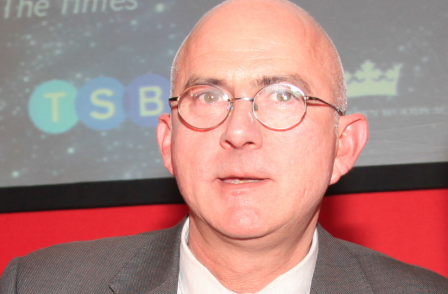
Journalist of the year Andrew Norfolk told last night how he believes Lord Justice Leveson disregarded his child abuse investigation in his report because it was “not without controversy”.
The Times reporter criticised Leveson for not including his story in the report’s “good practice” section, in which newspapers were told to submit their best five stories in the public interest.
But only four of The Times’s stories were included, with Norfolk’s investigation – which saw him claim the top honour at last night’s British Journalism Awards – omitted.
In his acceptance speech, Norfolk also criticised the police for the treatment of journalists and praised Press Gazette for the Save Our Sources campaign and coverage of police forces’ use of the Regulation of Investigatory Powers Act to find journalistic sources.
Norfolk described Leveson’s “good practice” section in his report as “his fleeting concession to the remote possibility that perhaps just sometimes not everything we do is grubby and sleazy and wrong”.
He told the audience at Stationers’ Hall in central London: “Sir Brian invited each national newspaper to submit its five most important public interest stories of recent years for his consideration.
“The good practice chapter of that report duly featured most of those stories – but not quite all of them.
“The judge explained that he decided to omit one or two because , and again I quote his words, they were ‘not without controversy’.”
He said that if Leveson was present at the awards he would “really have liked to have the chance to try to explain to him that sometimes it’s uncomfortable truth, the ones that are not without controversy, that are the very stories most important for a journalist to tell. Even if it causes discomfort to a High Court judge.”
Norfolk added: “What happened with that report was The Times as requested submitted five stories. And Lord Leveson accepted four of them. All but one. And, you know, I really am quite proud to be able to stand here this evening and say: guess which one he chose to discard?”
The Times reporter also bemoaned the state of police-press relations in his speech.
He said: “Senior officers you once had a relationship with based on what you thought was mutual trust and respect suddenly too scared to speak to you, or perhaps it’s not that, they’ve just got so much on, the poor dears: planning your arrest, wading through your phone records, I think it’s 1,700 phones from my company alone. Cheers for that, Vodafone, by the way.”
On Press Gazette, Norfolk added: “It’s done really important work on behalf of every journalist in this country with its RIPA campaign. It’s really made a difference and I think all of us in this room are thankful for that.”
Email pged@pressgazette.co.uk to point out mistakes, provide story tips or send in a letter for publication on our "Letters Page" blog

